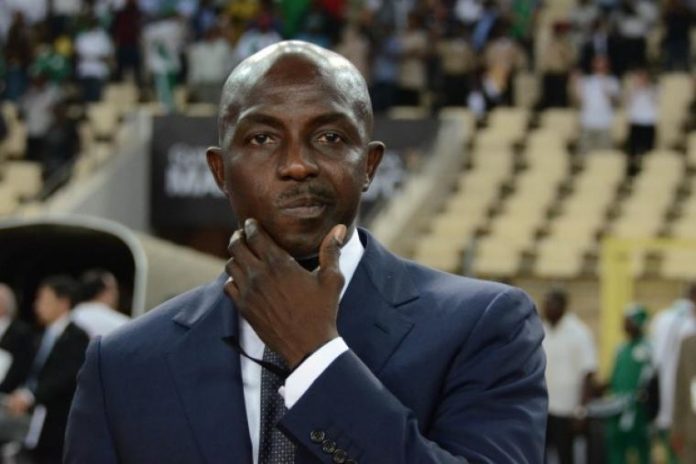

AS team manager of Nigeria Premier League side Gateway Football Club from 2003 -2005, Nigeria international Tajudeen Disu experienced match-fixing face to face.
The current supervisor of sport, Surulere Local Government was in charge of day to day running of the Ogun State owned team while it was in the Nigeria elite league.
Disu witnessed dirty manipulation of league matches at home and away grounds at different times.
Once, he was accosted by an officiating referee on the eve of a home match in Abeokuta, Ogun State, to bribe his team with N200, 000 to secure a penalty the next day. With N400, 000, the referees were ready to award the home team two fraudulent penalties and an assurance that his team walked away with the three points at stake.
So, when he was asked if match-fixing is real, the former captain of the defunct Abiola Babes and holder of two FA Cup titles did not flinch before answering. “Yes. It is real. It is rampant and existed long before now. It is in our league and it stared at me in the face while I was managing Gateway FC. In my presence a referee has ordered penalty replay three times until a goal was registered.”
Sometimes the host team is responsible for fixing a match and other times the away team could be the fixer. “As soon as a referee gets to a match venue, host club will whisk him off to an unknown hotel. Referees are given women (prostitutes), cash and freebies to manipulate matches. For a while, there was a fixed rate of N200, 000 for penalty and if you want two penalties as security for maximum points, you have to part with N400, 000. They come to you with confidence. Sometimes I feel like punching them.”
The U.S trained claimed his team’s relegation in the 2005 NPL season was due to his ‘not playing game’ with referees.
The Flying Eagles class ’83 defender added that match-fixing is more common now. “That the standard of leagues in Nigeria is low is a pointer that there is corruption, the higher the corruption the lower the standard.”
In 2013, Nigeria football witnessed match-fixing at a bigger level when four National League (Second division) teams agreed to fix their matches. One Premier League ticket was at stake.
With Plateau United Feeders and Police Machine looking to move up on last day round of matches, Plateau United were 7-0 up at half time against Akurba FC, and Police machine 6-0 ahead against Babayaro FC, then the games went from the bizarre to the truly ridiculous.
Plateau United went on to score 72 goals in the second half to claim an unprecedented 79-0 win, which was enough to finish ahead of Police Machine, who could only manage a 67-0 victory, a game in which someone scored 11 goals, three own goals, and saw four strikes within sixty seconds.
The Nigerian FA banned all four teams for ten years due to the ‘shameful incident.’
SAMSON SIASIA
Last week, FIFA (Football world ruling body) handed a life ban to Nigeria famous coach Samson Siasia, following his indictment as a collaborator in fixing a 2011 Nigeria-Argentina friendly match in Abuja.
FIFA had said in a statement that Siasia was “guilty of having accepted that he would receive bribes in relation to the manipulation of matches in violation of the FIFA Code of Ethics.”
The statement reads, “The formal ethics proceedings against Mr Siasia were initiated on February 11, 2019, and stem from an extensive investigation into matches that Mr Wilson Raj Perumal attempted to manipulate for betting purposes.
“This large-scale investigation was conducted by FIFA via its competent departments and in cooperation with the relevant stakeholders and authorities.
“In its decision, the adjudicatory chamber found that Mr Siasia had breached Act. 11 (Bribery) of the 2009 edition of the FIFA Code of Ethics and banned him for life from all football-related activities (administrative, sports or any other) at both national and international level.
“In addition, a fine in the amount of CHF50, 000 has been imposed on Mr Siasia. The decision was notified to Mr Siasia today, the date on which the ban comes into force.”
However, in stout defence of his reputation, Siasia had said that he never got any communication with FIFA before the decision to ban him was reached. In response to the fact that the football world body said it sent him a mail, the coach said he seldom check is email and as such didn’t get to know about it. Observers also think the allegation against him was too weighty for the world body to have just depended on sending an email without making phone calls or sending him surface mail through courier service to his physical address with them.
INTERNATIONAL
MATCH-FIXING
Adegboyega Onigbinde, FIFA and Confederation of African Federation (CAF) instructor experienced match-fixing at international stage.
The two-time coach of the Nigeria national team (Super Eagles) in 1984 and 2002 got the bitter pill of match-fixing, what he calls; ‘a megabuck industry’ at the Africa Cup of the Nations (AFCON) and the FIFA World Cup. “Match-fixing is real, big and big people play in it,” he said.
The octogenarian, attested to an international ring fixing matches at global stages. “When my team played Argentina at the Korea/Japan World Cup, I am very sure the match was fixed. Some of my players were paid to destroy my team. They turned my first team against me in dressing room. I smelled a rat and I told the whole world but I was not taken seriously. We could have won the match against Sweden if I had used the boys I fielded against England. I got a draw with England because I weeded out these elements.”
Onigbinde further claimed there was foul play in the 1984 AFCON final in Cote d’Ivoire. According to him, “In 1984 Nigeria came second under my watch at the finals of AFCON against Cameroon in Cote d’ivoire, I lost that match because the administrators traded the match and I will reveal their names soon.”
The Eagles lost the finals against the Indomitable Lions 3-1.
In 2014, Nigeria was again in the eye of match-fixing storm when self- confessed fixer Wilson Raj Pemural, in his published memoir said he “helped” the Super Eagles to get to the 2010 World Cup in South Africa.
The then president of Nigeria Football Federation (NFF) Alhaji Ibrahim Galadima said the matter would be investigated but nothing came out of it.
Onigbinde, who willingly bowed out on FIFA assignments after 20 years, said the Nigeria local league is enmeshed in match-fixing. “I don’t bother myself with what is going on there. You can see what goes on at match venues. Referees are bought and matches are sold to the highest payer.”
RAMPANT IN AFRICA
Austin Popo, the General Secretary of Nigeria Players Union strongly believed Nigeria and some African countries are vulnerable to match-fixing due to poor economy and remuneration of players and coaches.
In January 2019, former Kenya national coach Paul Nkata and his assistant, George Mandela, were sacked by Kenyan club Kakamega Homeboyz over match-fixing allegations.
Club owner Cleophas Shimanyula said the vice is out of control in the Kenyan Premier League.
“In so many clubs in the Kenyan Premier League there is match fixing, but in our team, it had roots. Its only that other clubs fear speaking out,” Shimanyula stated.
“We have all the evidence and I wonder why the federation has not taken action on Nkata and Mandela.”
He alleged that Nkata was involved in a betting ring and helped pay his players to flunk games. “He used to give players Sh150, 000 or Sh50, 000 and because the players earn less, they will take the money and do as they are instructed since he (the coach) is their boss. I won’t blame players as much. The coach used to substitute Allan Wanga (their top striker) to avoid scoring goals that could have led to him losing bet.”
Shimanyula claimed an influential criminal betting ring rules Kenya league.
Tijani Babangida, Nigeria international and current president of Players Union corroborated Shianyula’s declaration.
He said, “It is a serious problem locally because players are poorly paid and sometimes they are caught in the web of aggressive betting agents and big time investors. It is an entrapment.
“However, this is only a tip of the iceberg when you look at what happens across Europe, United States, and Asia, not only in football but in boxing, cricket, athletics and the Olympics. Match-fixing is a megabuck business and it is taking away sports’ credibility, the bigger the stake the higher the fix.”
Tip of the iceberg
According to the April 30, 2019 edition of LawInSport (a bi-weekly bulletin), nearly all football leagues in Europe, Asia and America has been investigated by a combine force of FIFA, UEFA and INTERPOL for match-fixing related cases. Amongst them are Estonia, where in 2014, a life ban was imposed on three elite division soccer players on suspicion of match-fixing while two players from the first division were suspended until the end of the year and a second-division player given a life ban.
In 2005, the ‘Whistle Scandal’ involving millionaire investors bribing two referees to fix results rocked Brazilian football.
In 2011, the Calciopoli scandal led to the arrest of 40 players and collaborators in separate match-fixing cases in Italy.
Same year, Singapore was named as the centre for a vast network of fixers and 14 people were arrested there in September. Wilson Raj Perumal, the Singaporean kingpin was fingered as the main fixer in a bribery of 11 players in the Finnish league.
China elite club Shanghai Shenhua were also stripped of the 2003 title and 33 players and officials banned for match-fixing.
In 2011, Turkish top club Fenerbahce was involved in a major match-fixing scandal and Aziz Yildrim, its president was convicted for fixing six matches and offering payments to players and club officials. The scandal exposed 17 fixed matches.
Last October, French authorities began investigating allegations from the Oct 3, Champions League game in Paris, where PSG won 6-1 over Red Star Belgrade. L’Equipe newspaper reported that a Red Star Belgrade official was suspected of betting five million Euros ($5.8 million) on Red Star losing by five goals.
FIFA have described match-fixing as a ‘disease’ that could kill football.
The stake is also getting higher as organised football gets bigger.
INTERPOL (International Criminal Police Organisation) estimates the size of illicit match-fixing market to be around $500bn dollars.
MODUS OPERANDI
The main player is the fixer backed by big money bags who are the principal investors. Interpol believed that this racket is controlled by mafia-like criminals with loads of cash and influences to lean on.
There are many fixers on the field and they are the main agents that make contacts. Fixer is like the man next door, a fervent fan or a bookie, an agent, or even another athlete. He starts by getting closer to a player, coach or administrator. Once this is done, he moves in to gain confidence of the party in question. Once he has gained their trust he will direct them to ensure a specific outcome such as making sure a minimum number of goals are scored in a particular match. The fixer’s main contact on the pitch will deliver a pre-arranged signal, such as getting booked in the opening five minutes, to show the fix is on.
Several people can act in order to allow for a fix to happen. As in the case of Nigeria Football League, referees, players and coaches are mainly targeted as the ones with the most direct involvement.
Goalkeepers are mostly vulnerable and bought to allow a goal from a certain player or a pre-defined score line while concealing pretty well their intentions.
LawInSport report noted that coaches can also be involved in these schemes. “Coaches use different tactics: resting key players, strange substitutions to reduce the performance of their own team.”
“Match officials are also a common target for fixers. Small decisions, such as changing the side of a throw-in, conceding a corner or allowing an off-side position to be played can bring significant upheaval to a game.”
This is common in the Nigeria league.
Greed
Onigbinde however laid the blame on greed of coaches and players. “I spent 25 years in CAF and 20 years in FIFA and got a plaque from FIFA commending my works. Though they wanted me to continue I willingly quit. For people like us the world feel that we are fools but who is laughing now. Fixers capitalize on the greed of coaches and players but when they are found out it brings shame.”
For Disu, some policy of the FA encourages match-fixing. “The Nigeria FA leaves indemnity
Key figures in alleged match-fixing
DAN TAN
Allegedly the ringleader of a global match-fixing network, Tan was arrested in Singapore in September along with 13 others. His network was allegedly responsible for rigging hundreds of matches worldwide, although he may not face trial. Interpol described him as “mastermind and leader of the world’s most notorious fixing syndicate.”
WILSON RAJ PERUMAL
A convicted match-fixer, Raj Perumal is understood to have rigged a series of fixtures over the past 30 years. He fled to England from Singapore after skipping bail in 2009 on charges of running over a police officer and spent a year in a Finnish prison after being convicted of bribing 11 players in 2011. The fixer at the centre of the recent allegations described him as “the king, my boss”
Post Views: 70
You may be interested

I Want To Take My Game To New Level –Lookman
Webby - November 13, 2024Super Eagles winger Ademola Lookman has reiterated his commitment to take his game to the next level.The Nigerian international, who…

AFCON 2025Q: Benin Republic Hit By Another Injury Blow
Webby - November 13, 2024Benin Republic will be without two more players for their 2025 Africa Cup of Nations qualifying matches against Nigeria and…

Dier Set To Depart Bayern In Summer
Webby - November 13, 2024Eric Dier is likely to leave Bayern Munich at the end of the season according to transfer expert and Sky…






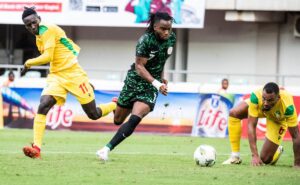
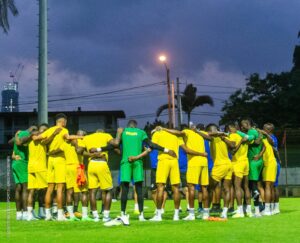




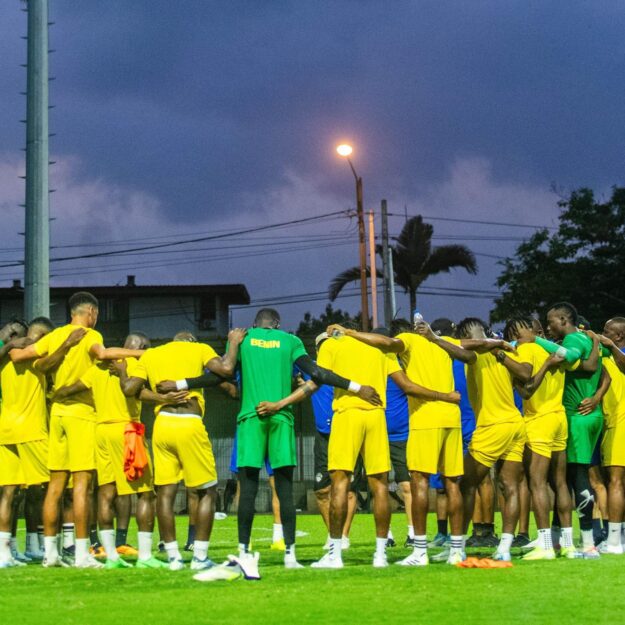

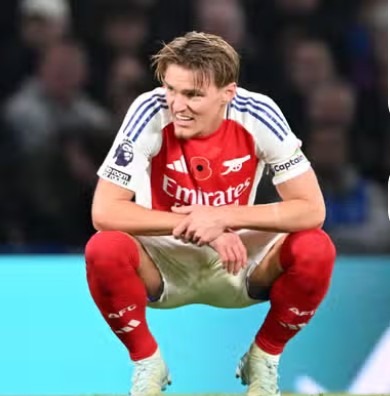
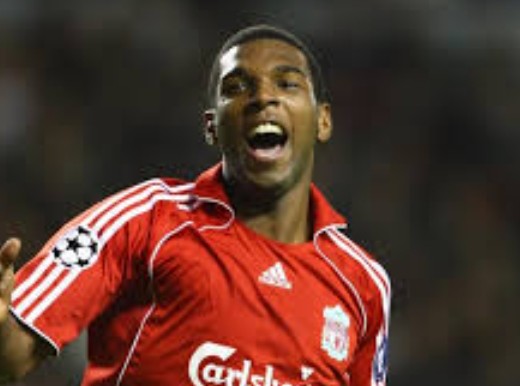


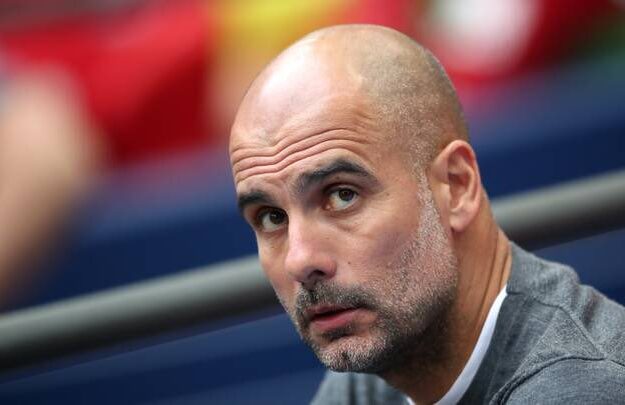
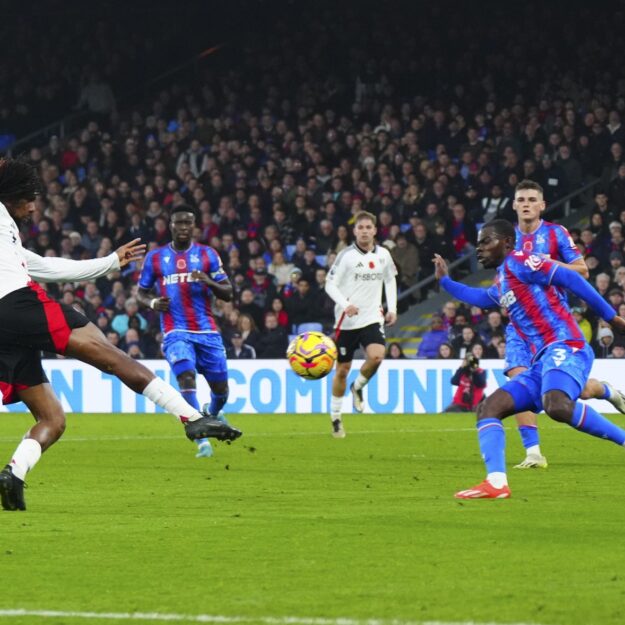

![American Pastor, David Wilson Seen Eating The Box Of Woman Who Isn’t His Wife [Video]](https://onlinenigeria.com/wp-content/uploads/2019/10/american-pastor-david-wilson-seen-eating-the-box-of-woman-who-isnt-his-wife-video-150x150.jpg)








